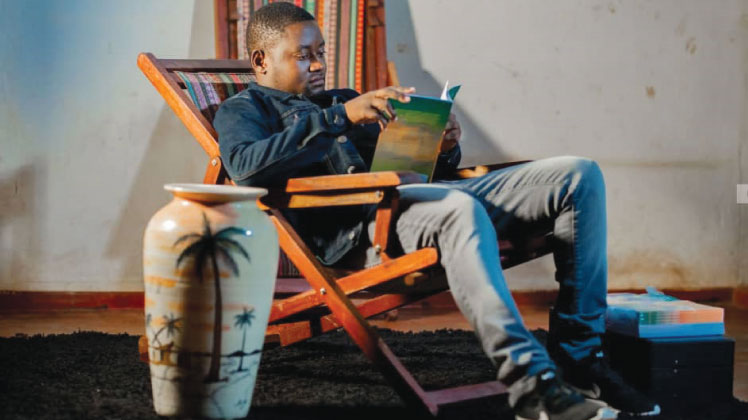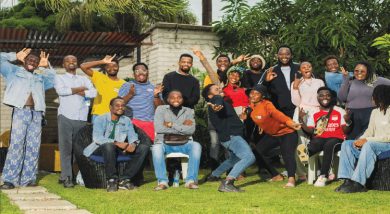‘We must write books for local readers’
Writing is a skill few have mastered on the local scene. And reading is regularly is still something that is being promoted locally. But this has not stopped from passionate writer Tuntufye Simwimba from authoring a book with a theme of celebrating our culture while subtly protesting other social injustices. Our arts editor EDITH GONDWE caught up with Simwimba to discuss the book and everything about writing and reading. Exceprts:

Q
: First introduce yourself and your brief background?
A
: I am Tuntufye Simwimba. I’m a writer since the age of 13. I was the overall winner of the Malawi PEN national competition at 16 years old. I have contributed in many books, including Imagine Africa 500, which is now used to teach African Sci-fi at the University of Manchester in the UK. I have contributed in Familiar Stranger, a book used to teach literature in junior secondary in Malawi. I’m a lawyer by training and I currently work for Catholic Commission for Justice and Peace.
Q
: Tell us about your new offering?
A
: I called this offering Mine is a Drunk because it is a book written in a crisis. A crisis of self and a crisis of a man trying to make sense of a country wallowing in what I believe are self-inflicted wounds. The book was written as a reflection. It is with no doubt that it carried the various identity clashes that I experienced around that time, extreme afro-centrism, extreme afro-optimism, extreme afro-pessimism, escapism and alienation. These are the identity clashes that every African, and Malawian, at some point in time meets. At the same time, it is a protest of national disunity and abuse. It is a protest book, but also a well-rounded reflection of self.
Q
: Are Malawians eager readers of such content? How are you making sure that you promote reading and the appreciation of poetry and writing art?
A
: An interesting question. It is agreeable that Malawians are not keen readers, by a wide consensus at that. However, we should also agree that Malawians are lovers of a good story, conversation and word. We see that in our rich folktales, sayings, and everyday reflection. Those two do not marry. So, the reflection should remain that we writers are the ones to stand tall and write more on what Malawians can relate to. The fear has been an average Malawian, even African is writing with a European audience in mind. So, we should first have an audit on what literature is there that is relatable to a Malawian. Sikusinja ndi Gwenembe is a familiar book to most Malawians because we can relate to it. Our poetry should be the same. I also rationalise art this way.
Q
: Now that the book is here, how do you plan ensure that it reaches far and wide audience?
A
: I’m in talks with Grey Matter Bookshop. Their platform affords international exposure as an international bookseller. I have also brought together a team to organise a launch and book readings. I believe those small bites will eventually lead to a big bite.
Q
: What can be done to improve the passion for both writing and reading, as well as ensuring that writers are writing content that Malawians can relate to?
A
: It all starts with national pride. We need to be proud of our own stories and art form. It starts from there. We need to stop assuming that there is another country that will like our stories more than we do. We are losing a lot as it stands from a complete lack of writing the first account of our history. We also need to insist on teaching our own books.
Q
: How important is it to read and write widely?
A
: Above everything, reading is good for enhanced analytical skills. The focus towards reading and writing should often go beyond mastery of language. We are in a world where creativity, imagination, and innovation mean everything. We can train our minds through reading and writing.n





